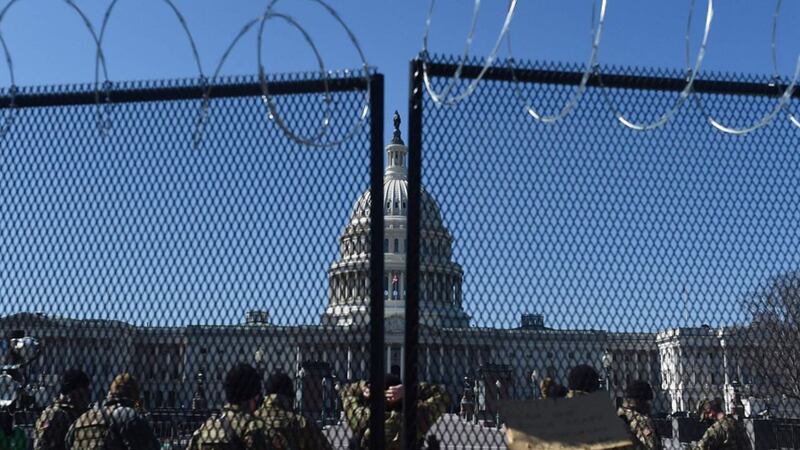The U.S. Senate on Saturday passed President Joe Biden’s $1.9 trillion COVID-19 relief package after a marathon session that included a 10-hour standoff over how much help those who have lost their jobs during the pandemic will get.
The final vote for the plan, which includes $1,400 direct payments for millions of Americans, money to pay for COVID-19 vaccinations and funds for school reopening, was 50-49 along party lines.
The bill will now be sent back to the House of Representatives, where a vote will have to be taken to approve of the changes made in the Senate.
Consideration of amendments to the bill began on Friday morning, but stalled almost immediately when around 11 a.m., Sen. Joe Manchin, D-West Virginia, objected to a Democratic proposal to extend federal jobless benefits until Oct. 4.
Senators left the floor and would not return until nearly midnight.
With no votes to spare, Senate Democrats were forced to alter the House version of the unemployment measure to secure the votes of all 50 of their members.
After some 10 hours of negotiation, Democrats crafted a new deal to extend the current $300 weekly benefits through Sept. 6 and make a portion of the 2020 benefits nontaxable for some eligible households.
In the House version of the bill, federal unemployment benefits had been set at $400 and would have been paid out until Aug. 29.
“We have reached a compromise that enables the economy to rebound quickly while also protecting those receiving unemployment benefits from being hit with (an) unexpected tax bill next year,” Manchin announced around 10 p.m.
“The president supports the compromise agreement, and is grateful to all the senators who worked so hard to reach this outcome,” Jen Psaki, the White House press secretary, said in a statement after the compromise was announced.
It was the second time Senate Democrats changed portions of the bill based on the wishes of moderate members of their party. On Wednesday, the eligibility for those who would receive a $1,400 direct payment was pared down.
The first action on the legislation came when Sen. Bernie Sanders, I-Vermont, proposed an increase in the federal minimum wage from $7.25 to $15 over a period of five years. While all the senators present registered a vote, the vote was never called, as the standoff over unemployment insurance was beginning.
The vote was held open during the nearly 11 hours it took to come to a resolution on unemployment insurance, making the vote the longest in U.S. Senate history. The measure failed.
Once the Senate resumed around 11:30 p.m. Friday, the vote-a-rama, a marathon of amendment votes, began. Republicans threw dozens of amendments at the bill to try to trim the price tag on the legislation.
Democrats stuck together to turn back Republican attempts to modify the bill, including an amendment from Louisiana Sen. Bill Cassidy that would have stopped the $1,400 direct payment from being sent to prison inmates.
Republicans also offered amendments on transgender sports, immigration and funding for abortions.
Republicans argued that the bill, which will be the largest stimulus package in U.S. history if it is passed by the House, contained money for programs that were not affected by the pandemic, and pointed to an encouraging jobs report released on Friday.
“Our country is already set for a roaring recovery,” said Senate Minority Leader Mitch McConnell, R-Kentucky. “Democrats inherited a tide that was already turning,” McConnell said, citing the strong report on job creation as a reason to scale back spending.
While the Senate has an even split of 50 Republicans and 50 senators who caucus with Democrats, the GOP found itself one vote down on every action after Sen. Dan Sullivan, R-Alaska, left Washington mid-morning Friday to go to Alaska for a family funeral.
If the House accepts the bill the Senate has passed, Americans will see the $1,400 direct payments; money for COVID-19 vaccines; aid to state and local governments; money for schools and the airline industry; subsidies for health insurance; and tax breaks for lower-income earners and families with children.
The pandemic, which was declared a year ago next Saturday, has killed more than 525,000 Americans.
The House is expected to take up the bill next week.
Cox Media Group








